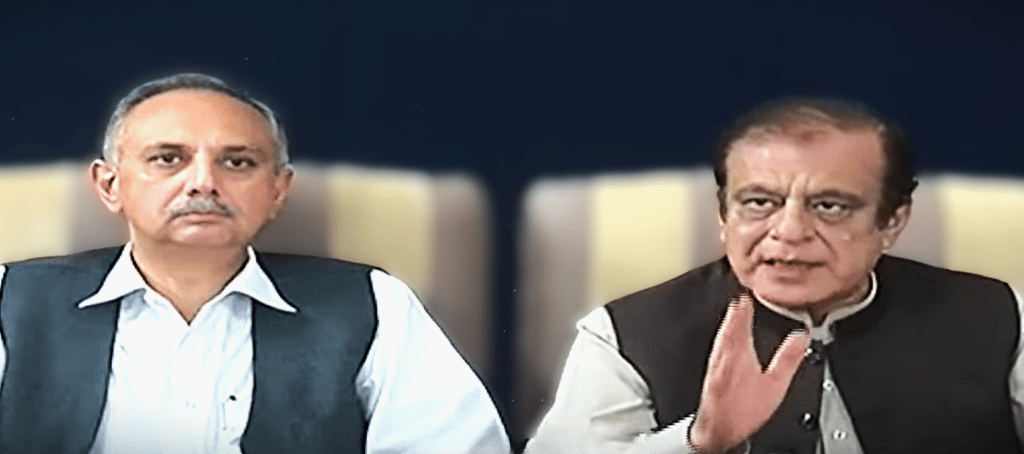Omar Ayub, Shibli Faraz, Zartaj Gul Get 10-Year Jail in Rana Sanaullah House Attack Case – ATC Verdict August 25, 2025
On Aug 25, 2025, ATC sentenced Omar Ayub, Shibli Faraz, Zartaj Gul and other PTI leaders to 10 years in Rana Sanaullah’s house attack case.
Raja Awais Ali
8/25/20252 min read


ATC Verdict: Omar Ayub, Shibli Faraz and Other PTI Leaders Sentenced to 10 Years in Rana Sanaullah House Attack Case
On August 25, 2025, Faisalabad’s Anti-Terrorism Court (ATC) announced its verdict in the high-profile case of the attack on Interior Minister Rana Sanaullah’s residence during the May 9, 2023 protests. The court sentenced 59 Pakistan Tehreek-e-Insaf (PTI) leaders and workers to 10 years in prison, while 16 others received three-year jail terms.
Among those sentenced to 10 years in jail are senior PTI leaders including Omar Ayub, Shibli Faraz, Zartaj Gul, Kanwal Shauzab, Ahmed Chattha, Rai Hassan Nawaz, Ansar Iqbal, Bilal Ejaz, Ashraf Sohna, Mehar Javed, Shakeel Nazir, Ismail Salah, Shahid Javed, and Junaid Afzal Sahi. All of them were tried and convicted in absentia after failing to appear before the court.
Meanwhile, 34 accused were acquitted, including prominent PTI leaders Fawad Chaudhry and Zain Qureshi, due to insufficient evidence. The case was initially registered at the Samanabad Police Station in Faisalabad, where 109 individuals were nominated for involvement in the violent attack. Out of these, 75 were convicted, while 34 were cleared of all charges.
The case is directly linked to the violent events of May 9, 2023, when protests erupted nationwide following the arrest of PTI founder Imran Khan. During these protests, government and military properties were attacked, and in Faisalabad, the house of then-Interior Minister Rana Sanaullah was targeted.
The ATC’s ruling has sparked divided reactions across the political spectrum. The government and its allies have welcomed the verdict, calling it a sign of rule of law and accountability. However, PTI supporters and opposition voices have condemned the sentences as politically motivated and a form of revenge against the party’s leadership.
Human rights groups have also raised questions about whether fair trial standards were met in cases involving political opponents, especially those tried in absentia. Legal analysts note that the verdict is a strong message from the state that acts of violence against institutions will not be tolerated.
This ruling comes at a time when PTI is already under immense pressure, with Imran Khan facing multiple legal battles and many of his key aides either imprisoned or disqualified. The sentencing of senior leaders like Omar Ayub and Shibli Faraz further weakens PTI’s political momentum and raises uncertainty about the party’s future role in Pakistan’s politics.
While the court’s decision establishes a legal precedent against violent political protests, it also deepens political polarization in the country. The events of May 9 continue to shape Pakistan’s political narrative, with both government and opposition interpreting the verdict as a turning point.